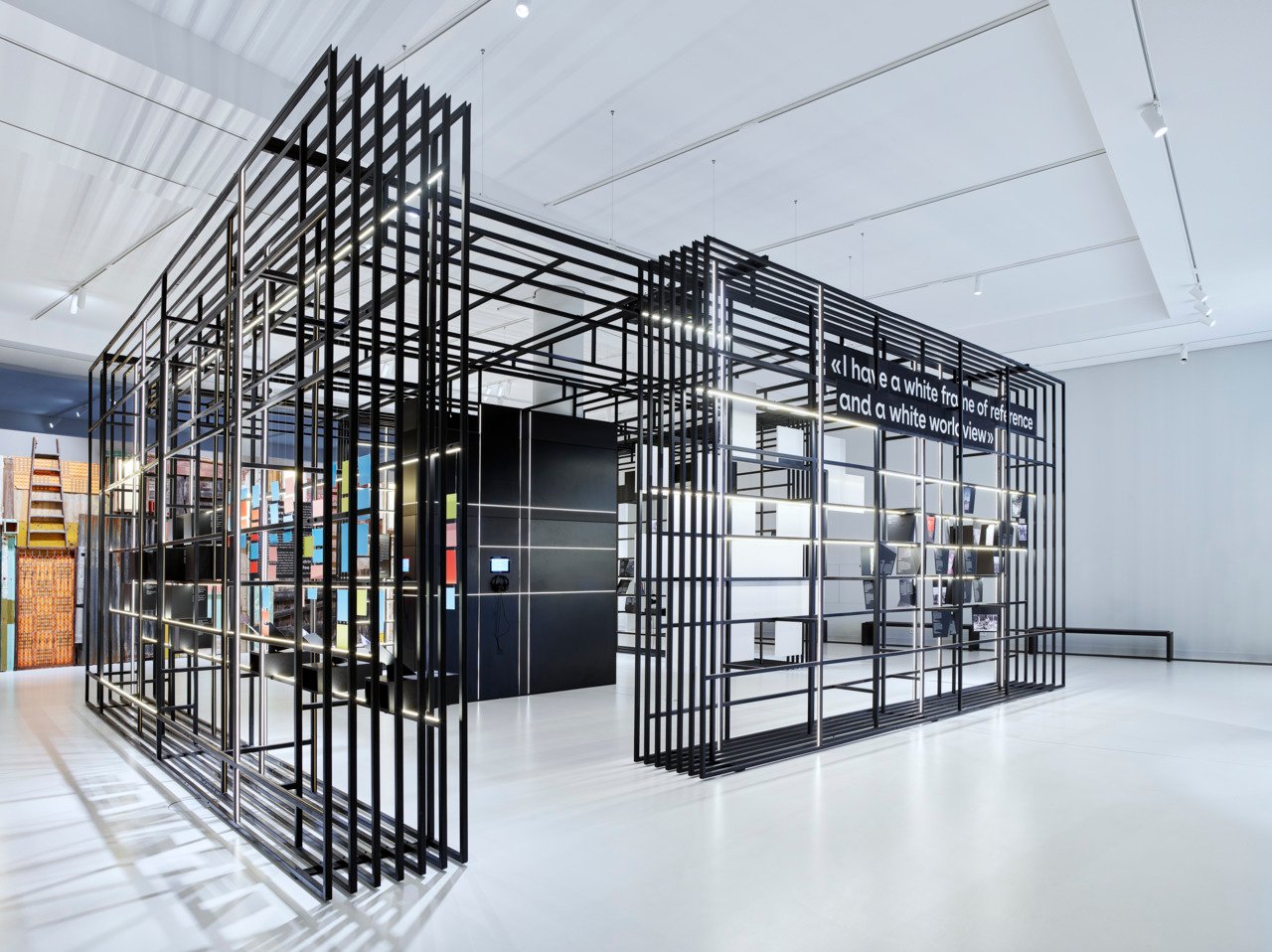Matter(s) of Perspective
{{ time.start_TS | TS2dateFormat('MMM') }}
{{ time.start_TS | TS2dateFormat('YYYY') }}
| 2nd Floor, Room 214 |
| Opening hours Mon, Wed, Thu, Fri, Sat, Sun: 10:30 am – 6:30 pm Tue: closed |
In recent years, ethnological collections in European museums have come under strong criticism. The Humboldt Forum is also working to address this issue. A temporary exhibition entitled Matter(s) of Perspective. A Prelude examines some radical perspectives that expose colonialism as a macrosocial occurrence. The installation is specifically dedicated to the traces left by colonisation in the former German colonial territories of Cameroon, Namibia and Oceania and presents interconnections that reach right into the present day.
Photographs and school books, sculptures and interviews form a starting point for reflection on the views of colonisers and formerly colonised societies. These views are typified by the distinction between Us and Them – the Othering of German society with regard to Cameroonian, Namibian and Oceanic societies, and their view of German society.
In order to focus on the points of view themselves, and in the spirit of the current discussion on restitution, the installation works less with museum exhibits, choosing instead to rely on reproductions. Additional artistic works raise awareness of cultural and institutional perspectives: using biographies of Namibians who spent part of their childhood in the GDR from 1979 onwards, a selection of films and images on the theme of intersectionality reflect the effects of colonial cultural contact.
The exhibition is located in Exhibition Area 214, adjacent to the presentation of collections from the Ethnologisches Museum focussing on Namibia, Cameroon and the Pacific area. It is one of the temporary exhibitions of the Stiftung Humboldt Forum im Berliner Schloss, which can be seen on the 2nd and 3rd floors. The presentations bring together different fields of knowledge, people and communities, both in their development and implementation as well as in their communication to the public, creating a strong influence on the character of the Forum. Developed by interdisciplinary teams of curators, they are created in close cooperation with social and community representatives whose history and identity is linked to the objects on display.
